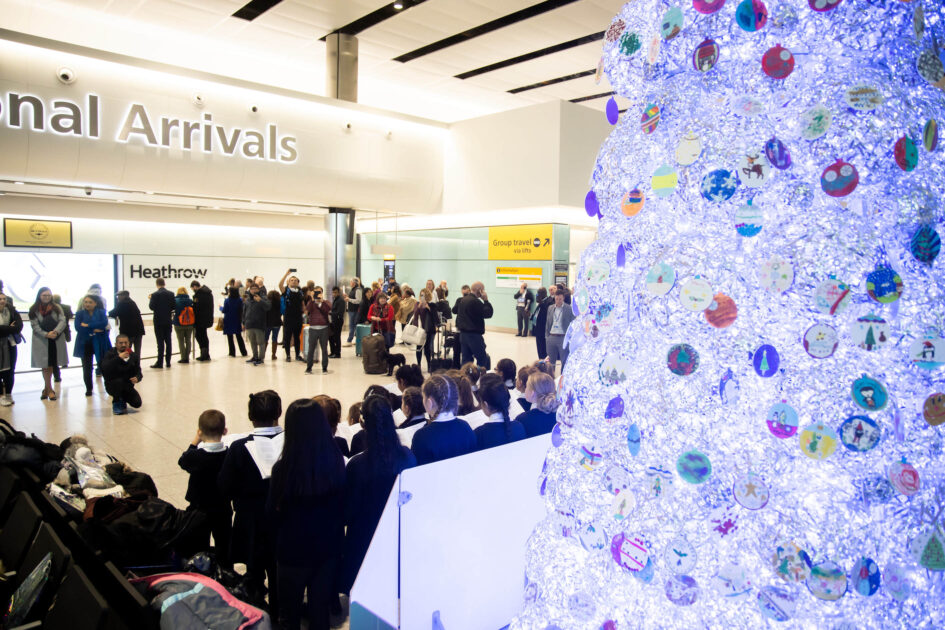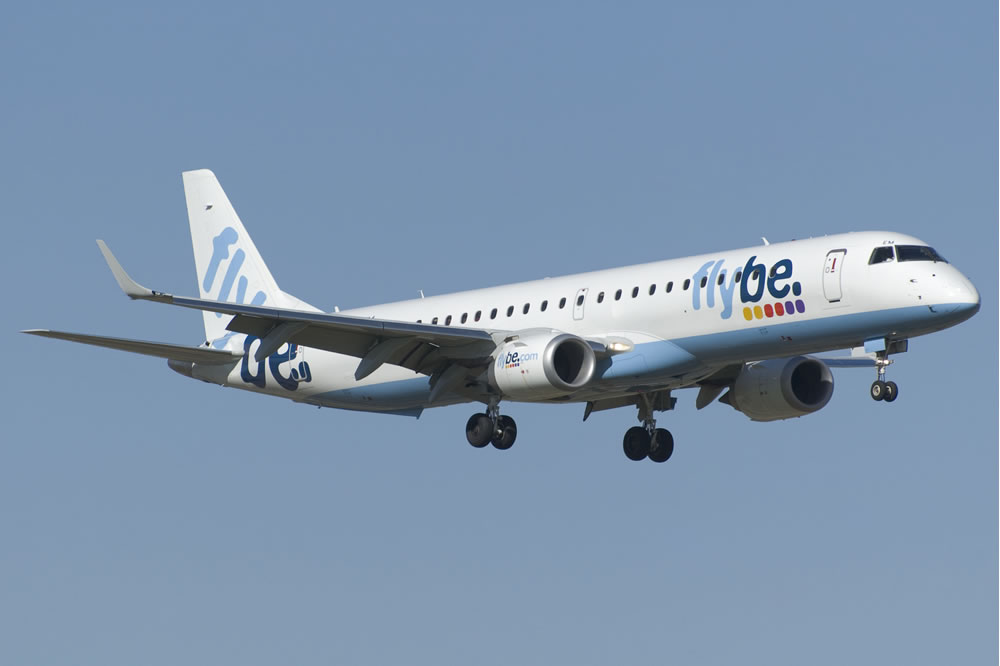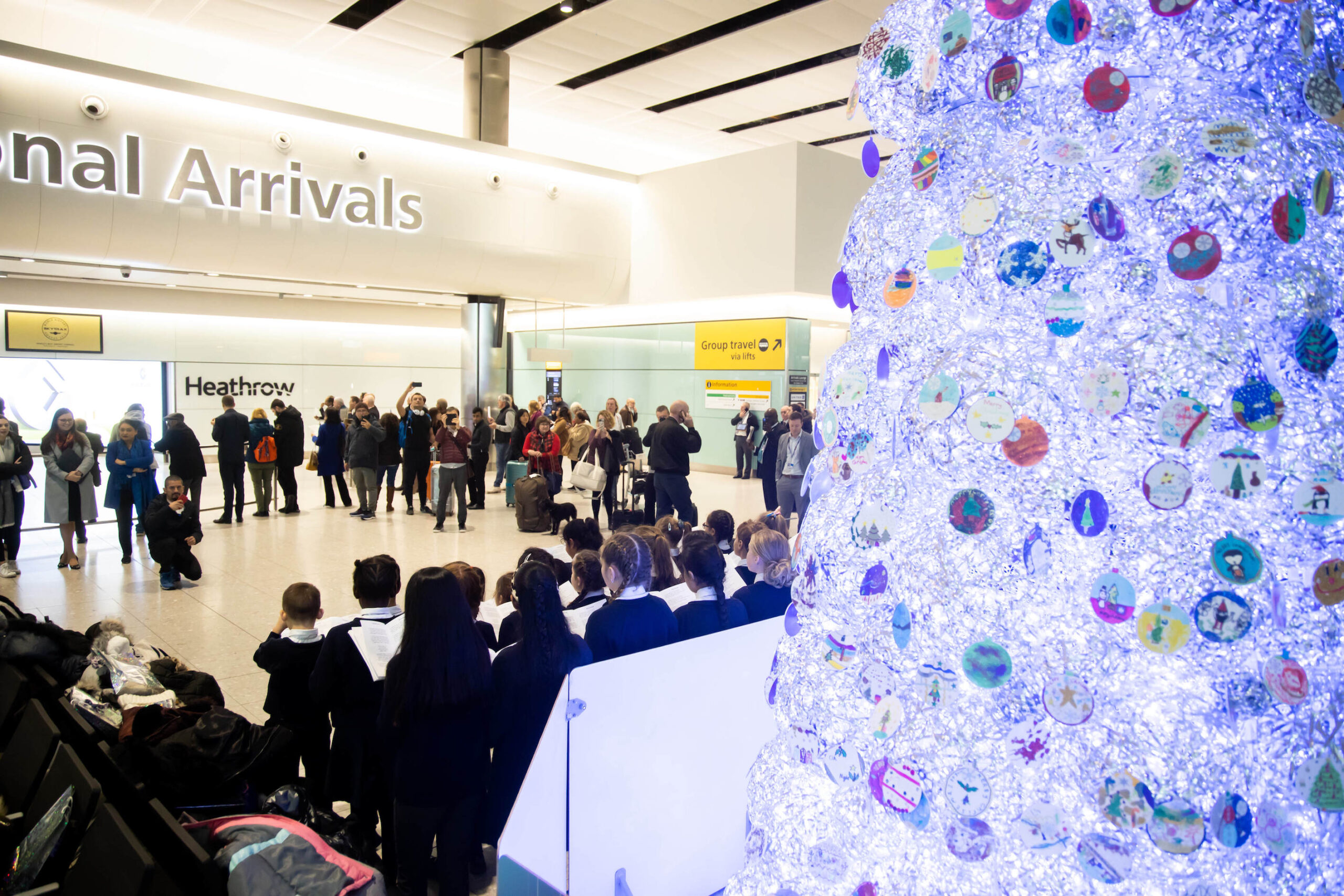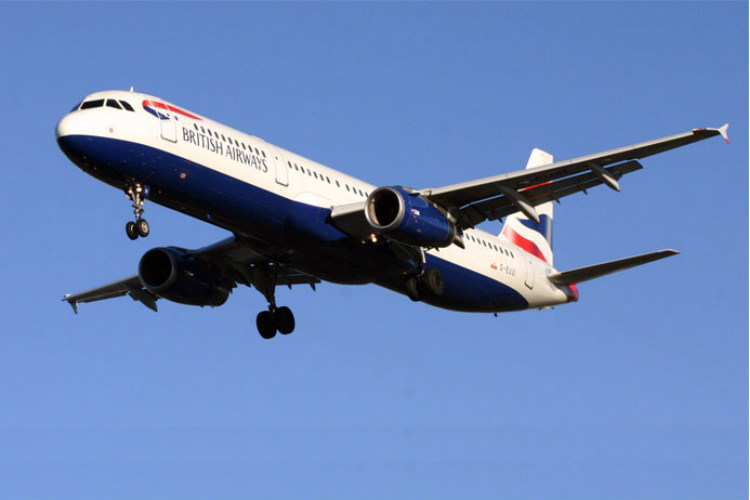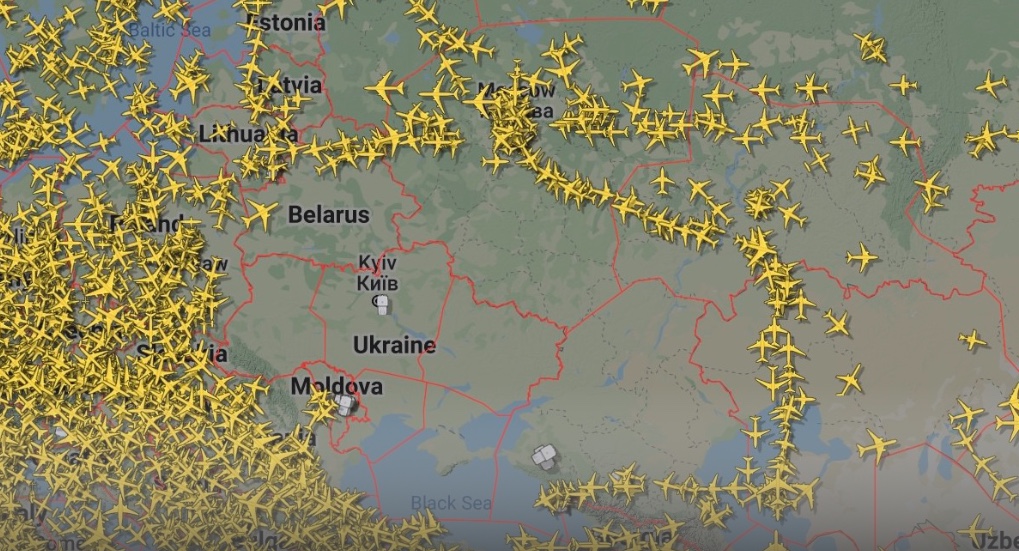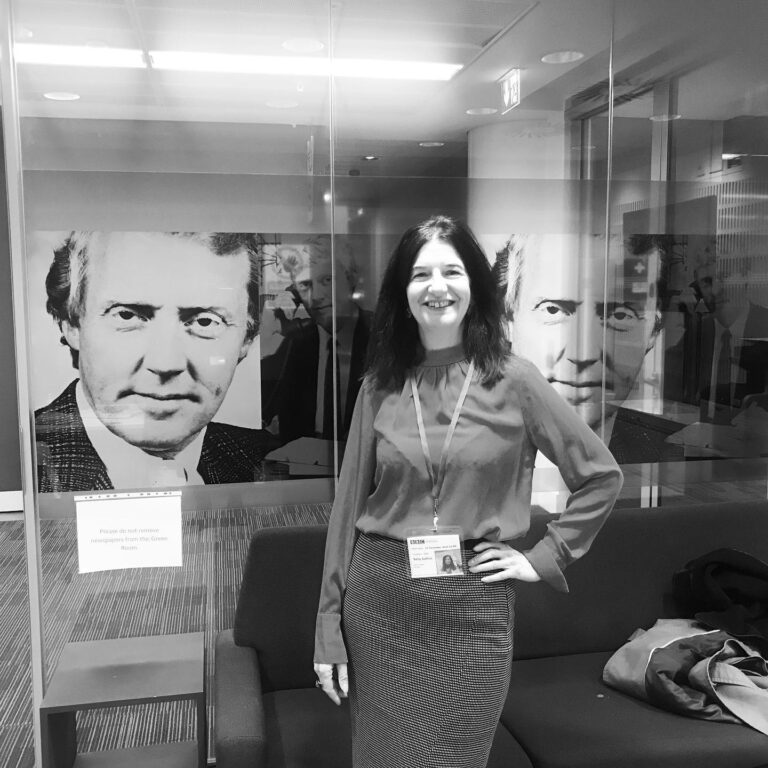At the busiest time of the year, Border force strikes by 1000 members of the PCS Union will hit several major UK airports including the gateway Heathrow from tomorrow. The strikes are timed between 23-26 and 28-31 December. A thousand PCS Union members and Border Force workers will go on strike affecting 8,910 inbound flights (over 1.7M seats), approximately half at Heathrow.*
The impact is on inbound arriving passengers going through border checks. But what this will look like on the ground is still unknown and unpredictable despite being less than 24 hours before it hits Heathrow, (T2-5) Gatwick, Manchester, Glasgow, and Cardiff airports.
The other likely impacts are queues, congestion and flight disruption as arriving passengers are delayed and backed up on the airside part of the terminal buildings. There will also likely be an impact on all areas including landside, as the airport will be under increased strain and pressure to manage passenger flows in and out of the terminals while keeping arrivals and departures sterile.
The planned industrial action has already had a pre-emptive impact with BA and Virgin reported to be reducing ticket sales to cope. Heathrow was reported to be in talks with most airlines to reduce their schedules on the strike dates.
Friday 23 December will be the busiest day for arriving flights at Birmingham, Glasgow and Gatwick, while Friday 30 December will be the busiest at Manchester. Heathrow and Cardiff will see an equal number of arrivals on 23 and 30 December.*
Heathrow CEO John Holland-Kaye said: “We are ready to welcome millions of passengers heading off to enjoy the holidays with family and friends. We have extra people in the terminals on the busiest days, including me and my management team, to ensure we get people on their way as smoothly as possible and start to bring the joy back into travel. We are doing everything we can to protect full operating schedules on Border Force strike days and departing journeys and the vast majority of arriving journeys should be unaffected.”
According to Heathrow’s official source, 5.6 million people travelled through Heathrow in November, down from 5.9m in October. Over 55 million people have travelled through Heathrow already this year, which is nearly 70percent of 2019 levels.

Official statement from Heathrow:
“The vast majority of travellers will be unaffected by Border Force strikes. We are doing everything we can to protect a full flight schedule on strike days, so departing passengers should expect to travel as normal. Arriving passengers with UK, EU, US, Canadian and some other passports will be able to use e-gates as usual and their journeys should be largely unaffected on strike days. Border Force has contingency measures to ensure other arriving passengers are cleared safely and as quickly as possible. We are continuing to support them to strengthen these plans so that as few people are impacted as possible. If passengers who cannot use e-gates are concerned about travelling during the strikes, their airline may be able to offer them alternative travel dates.“
Heathrow advice to passengers:
- Arrive no earlier than three hours before long-haul flights, and two hours for short-haul
- Be ready for security: no liquids, creams or gels over 100ml, seal any liquids in the bags provided and ensure large electricals go in a separate tray
- Check eligibility for and use eGates for a quicker journey when arriving back into the UK
(For a handy list of 12 tips for passengers click HERE )
Airlines may cancel shorthaul to medium haul flights to preserve the efficiency of longhaul flights. This in turn will push up demand for seats and air fares on the non strike dates.
Behind the scenes airports and government have mobilised 600 civil servants and armed forces to step in to take over the roles of the striking workers.
Much of the border control process at airports is automated with the use of e-Gates. This will provide some relief to the mitigation plans as e-Gates will take the strain on the strike dates. e-Gates apply to British citizens, and citizens from the EU, Australia, Canada, Iceland, Japan, Liechtenstein, NZ, Norway, Singapore, South Korea, Switzerland, and the USA. Registered Traveller Service members, children over age 12, but must be accompanied by adult when using the e-Gates.
Airlines are offering some flexibility in rerouting and rebooking affected tickets on flights.
The backdrop to this is that air traffic in and out of the UK is still below 2019 levels at minus19percent. Staffing is also still down at airports. Airlines and airports are still ramping up recruitment.
Other impacts include the loss of spend from inbound tourism, due to a decline in inbound travel over Christmas. It also deters customers from booking journeys in the first place. Airlines could lose millions in lost revenues from cancelled flights, and arranging rerouting where necessary for their customers.
Gatwick has also asked passengers to check the latest travel advice before heading to the airport, for customers to pre-book Special Assistance with their airline several days before travel for anyone with mobility problems, to bring extra food and water for journeys and check eligibility for e-gates at passport control.
London City Airport has tweeted: “We are anticipating business as usual at the UK Border but will communicate should there be any change.”
Airlines have a duty of care to look after affected passengers, despite the action being beyond their control. This means they are duty bound to provide emergency food and drink, or accommodation if passengers are stranded. However there is no additional compensation as it’s beyond airlines control.
Another strike is looming at Heathrow – with Menzies ground handling strike (which was postponed from its 16-18 strikes dates) to 29 Dec – 1 January. This will impact both inbound and outbound passengers, affecting ground operations at the airport including baggage, and ground support both airside and landside.
Border Force employs 15000 members of PCS Union. These constitute some of the lowest paid workers in the UK. The Union claims that there has been no pay offer to their members, only pay rises in last ten years below rate of inflation.
Sally Gethin’s opinion
The impact on travellers
It could be on a scale comparable or worse than the travel chaos in the summer. Immediate impact will be crowd management between airside and landslide with the worst crowding on the airside part of the terminal, which relies on constant flows from the aircraft gate to passport control and the e-gates.
Fortunately many of these processes are automated using e-gates but at Christmas with peak travel, human interfaces will be required. If passengers avoid travel altogether, or no further tickets are sold for the strike dates, the congestion could be minimised. Even so it is a high risk scenario, in terms of overcrowding and safety issues.
Compensation/rerouting
as the strikes have been announced more than 14 days in advance, airlines may be exempt from compensation, and as this is an event beyond their control, they may be protected from providing compensation. Airlines as a whole are dissatisfied with having to pay on behalf of third parties in these situations caused by external parties. Also they will haemorrhage millions of dollars/pounds anyway due to loss of air fare revenue for this action over the peak commercial time of year.
As for rerouting, airlines will have to reroute and this could cause congestion at other hub airports such as Amsterdam, Frankfurt or even hubs in the Middle East like Dubai. The air connectivity system is a balancing network that is impacted easily by disruption at a single hub in the network. However airlines are bound by EU and UK law to get their passengers to their destination and provide support in emergencies. US travellers inbound to UK are more vulnerable as US law is not as stringent on this in protecting passenger rights. To understand your rights as a passenger click HERE
UK as destination travel hub:
However justified the strike workers claims may be, clearly this is a very poor look for the UK as a destination and the circumstances may not be fully understand by inbound non domestic UK passengers. Heathrow acts as a global hub in competition with other major hubs in Europe for interconnecting passengers. If disruption is high, international overseas passengers may reconsider using Heathrow for their interconnecting flight in the future, choosing to go with another airport such as Paris CDG, Amsterdam Schiphol or Frankfurt.
However, the cost of living crisis and the Ukraine war is a global crisis impacting travel and the cost of travel internationally so industrial action in aviation over pay and conditions for workers, may not come as a complete shock to passengers. Air fares will be going up in 2023 on a global level anyway due to high inflation, economic recession, cost of jet fuel, avoidance of Russian airspace and this will happen on a global level as forecast by International Air Transport Association representing airlines around the world.
*Source: statistics supplied by aviation analytics firm Cirium.
